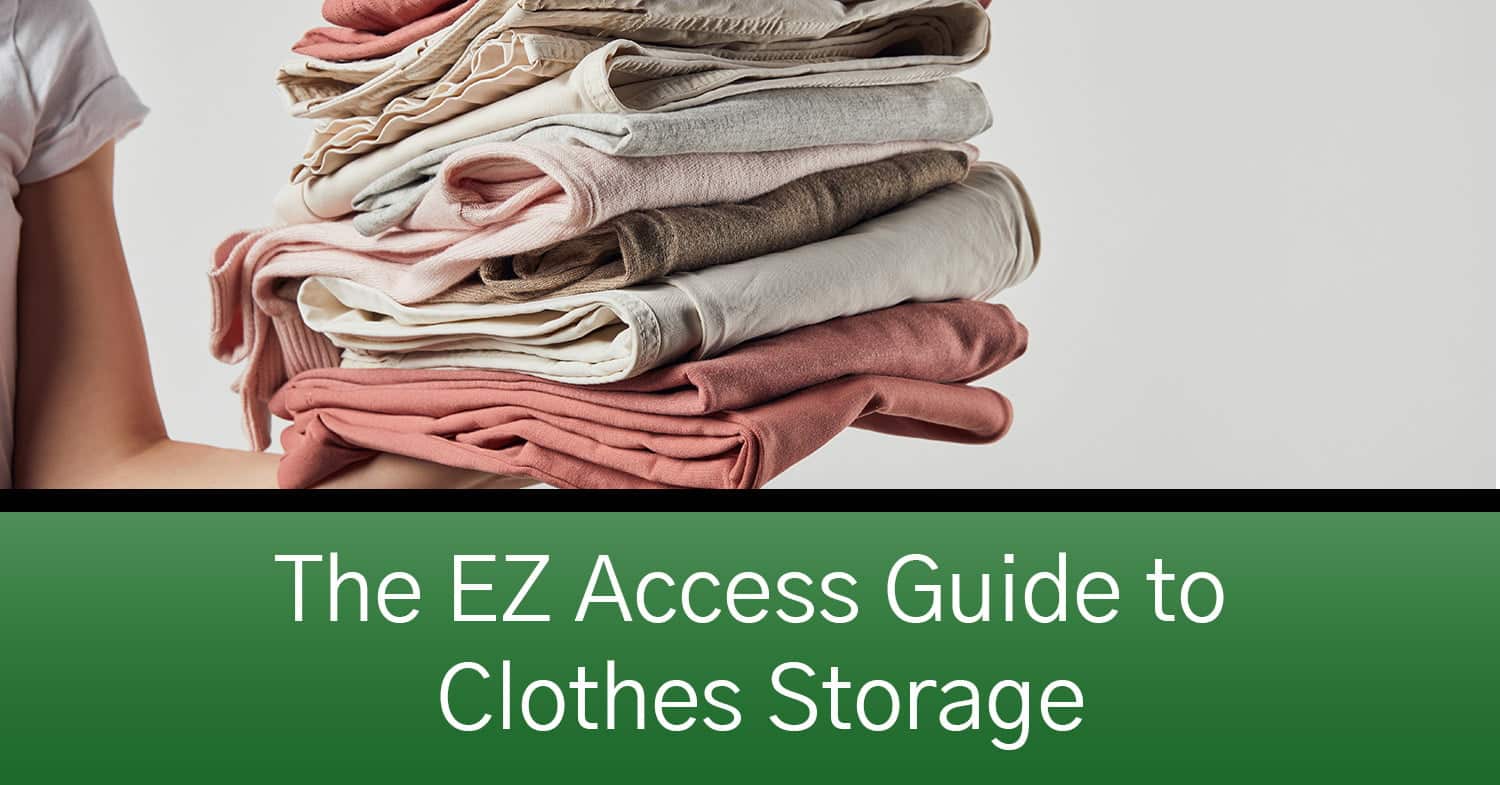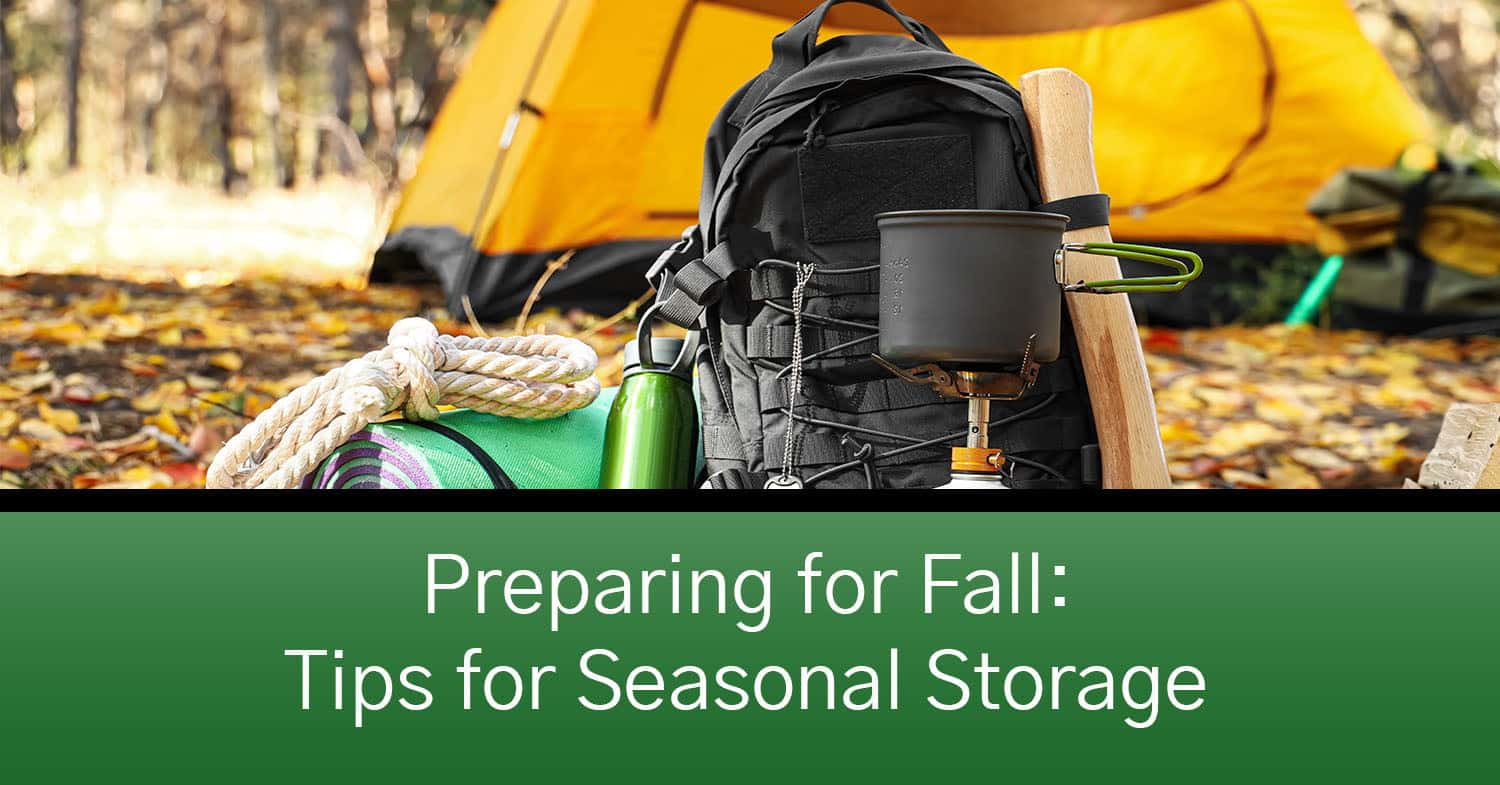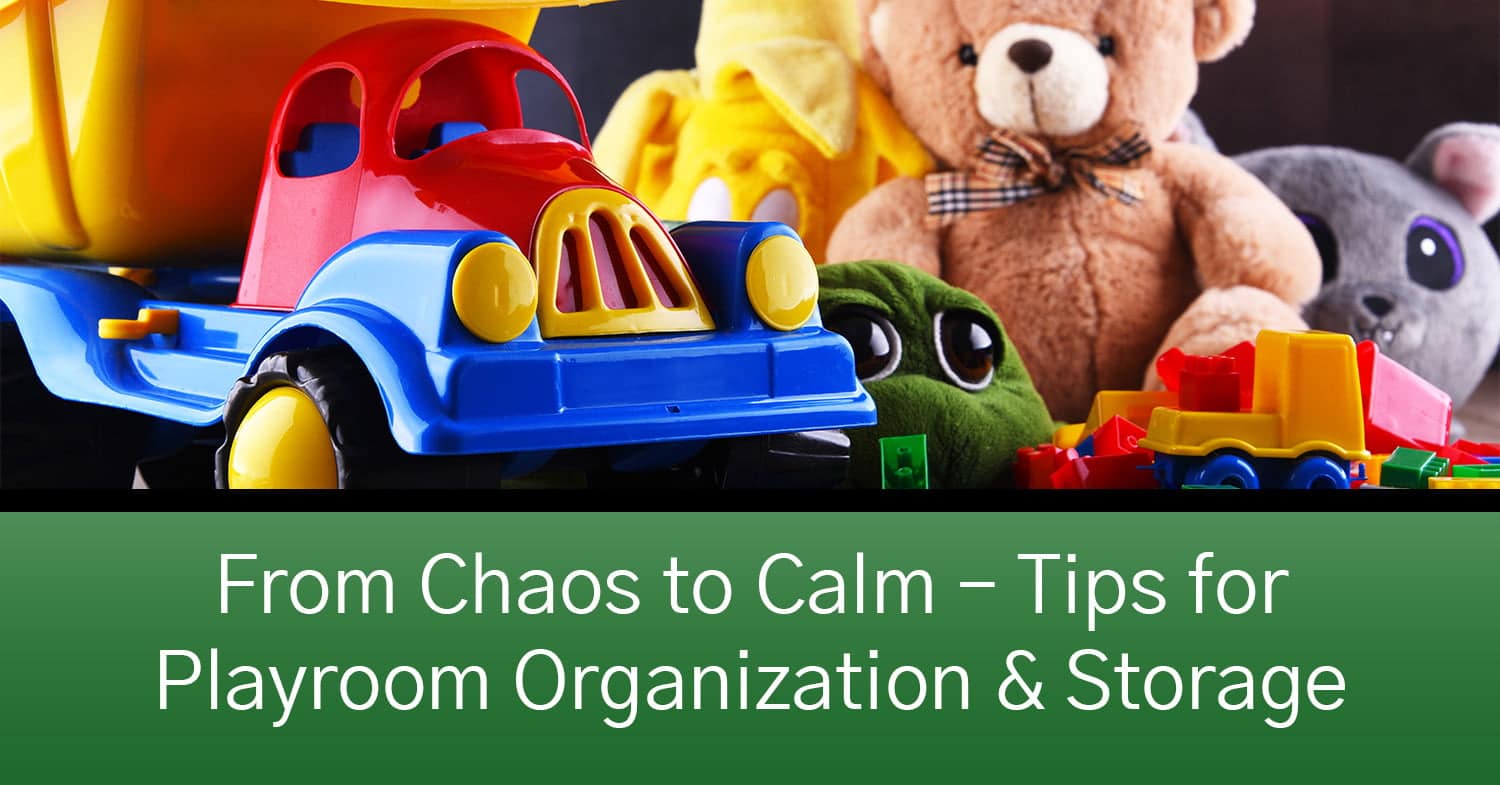To make your clothes last a long time and prevent damage, you need to store them the right way. Here’s our tried and true guide to clothes storage!
Wash and Repair Clothes
Before sending anything to storage, you need to make sure your clothes are properly washed and folded. Leaving an untreated stain on an item of clothing that’s being stored will usually create more problems for you later on. The stain will set further and cause discoloration or refuse to budge. The same goes for body odors, body oils, and perfumes. Left on unwashed clothes in storage, they will not only be more difficult to remove but also cause your clothes to deteriorate quicker.
After you wash your clothes, always be sure that your clothes are completely dry before you put them into storage containers. Once they’re finished in the dryer, wait an extra hour or two before you pack them away. Even just a little dampness can create a mold or mildew problem, which will damage your clothes for good.
Also, take this time to de-pill any sweaters, mend any rips, fix broken zippers, or replace missing buttons. Investing this time to clean, dry, and mend your clothes means you’re storing items that will be ready to go as soon as you need them.
Steer Clear of Plastic Bags
If there’s one piece of advice you take from this clothes storage guide, it should be this: don’t use plastic bags for long-term storage. Whether it’s a dry cleaner bag or a plastic garbage bag, you should steer clear of using them for storing your clothes. Moisture can be easily trapped in these bags and cause yellowing and mildew problems. The plastic covering also doesn’t give your clothing the chance to breathe, which it needs.
Take Advantage of Other Storage Supplies
While you should avoid plastic bags, there are quite a few storage supplies you should take advantage of for clothing storage. Some include:
- Plastic storage bins – cardboard boxes are popular for storage, but they can leave your clothes vulnerable to damage. Instead, use plastic storage bins. They’re durable, offer great protection from dust and moisture, and with clear bins, you can easily see inside to help you locate specific items.
- Wardrobe boxes – got long coats, dresses, and other items that can’t be folded up? Enter the wardrobe box. This box has a metal rod inside it to help you hang clothes. They help prevent your clothes from creasing and come in a variety of sizes, so you’re sure to find one that suits your needs.
- Garment bags – instead of using plastic bags to cover your clothes, use a cotton garment bag instead! They will give your clothes an added level of protection and avoid trapping any fabric-damaging moisture.
- Moisture absorbers – if you want to help avoid any moisture at all when storing your clothes, consider adding moisture-absorbing silica gel packets and/or cedar balls to your storage containers. This will keep your belongings dry and help prevent musty aromas.
Know Which Items to Fold and Which to Hang
When it comes to clothes storage, it’s important to do it the right way so you can enjoy your clothes for years to come. That means knowing which items should be hung up and which should be folded. Some clothing items won’t take kindly to being hung for months at a time. For example, sweaters and more delicate knit items will lose their shape when hung for a lengthy period of time. Let’s go over some common items you should fold vs. hang.
Fold items like:
- Pants
- Jeans
- Shirts
- Sweaters
- Stretchy clothing
- Workout clothing
- Baby clothes
Hang items like:
- Winter coats
- Jackets
- Long dresses
- Blazers
- Nice blouses
- Easily wrinkled clothing
Avoid Vacuum Packing
Vacuum-packing your clothes for storage might seem like a good idea. After all, it will give you so much extra storage space. But not everything should be vacuum sealed.
When natural fibers in some clothing are tightly compressed, the material can take months to return to its natural form, if it ever does. Vacuum sealing can also cause clothes to become permanently creased or wrinkled, effectively ruining your clothes. Delicates and any clothing or textiles you own that might be described as “fluffy” or “puffy” should be off-limits from vacuum packing. Here are a few examples:
- Bulky winter coats
- Down jackets
- Fur/faux fur coats
- Leather products
- Wool, cashmere, or silk products
Store in a Dark, Dry Place
For clothes storage, it’s important to store everything in a dark and dry environment. If there’s too much light, it can cause your fabrics to fade. Some fine places to store your items include your garage or basement, but your stored clothes might take up space that could be used for something better. Instead, consider a self-storage unit to store your clothing items. Storage units offer the perfect environment for clothes storage, they come in a variety of sizes, and you can save more space at home.

Store your clothes in an EZ Access Storage unit, and know your clothes will be safe and secure.
Store Your Clothes at EZ Access Storage
Looking for somewhere to store your clothes? EZ Access Storage is ready to lend a hand! We have a wide variety of options available, so no matter how much you need to store, we can help. Our storage units are spacious, secure, and affordable. We also offer boat and RV storage as well. We are always here to make your storage experience as EZ as possible in East Wenatchee!
Looking for Secure Storage Solutions?
From household items to vehicle storage, EZ Access Storage has you covered with clean, spacious, and reliable units and parking rentals to keep your belongings safe. Make sure to check out our Promotions page first to see what current savings are available!




